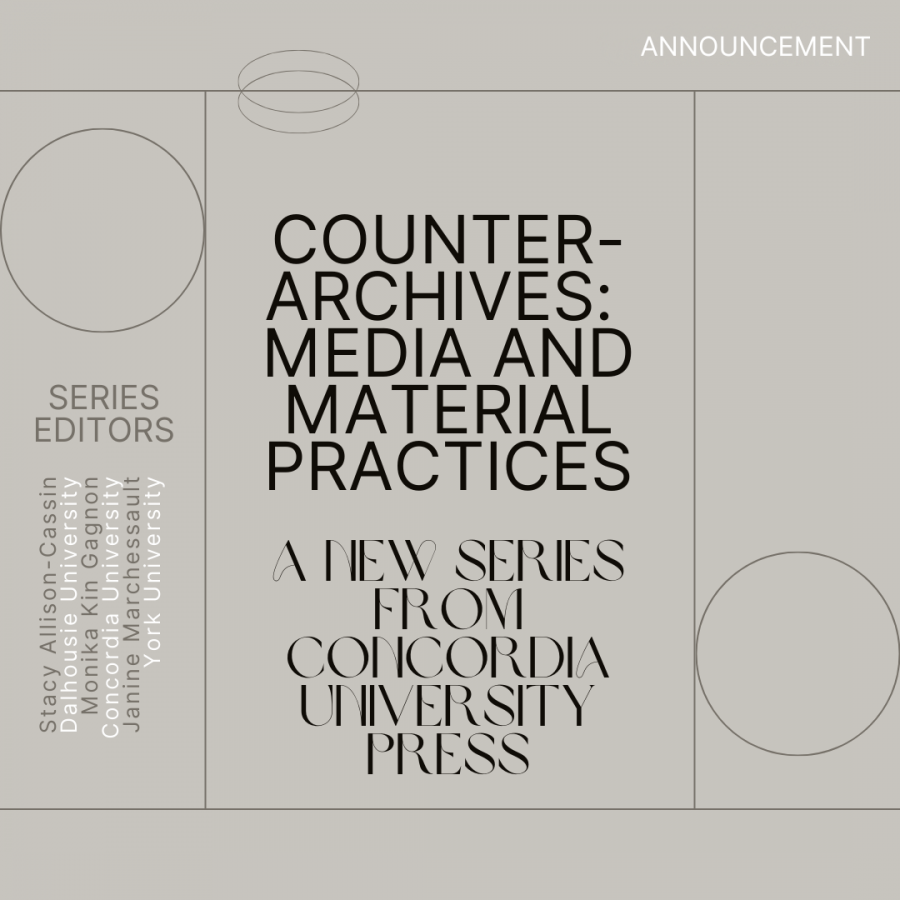Earlier this week, Concordia University Press announced the launch of three exciting new book series focused on media art, culture, and production. One of these is "Counter-Archives: Media and Material Practices," which will be co-edited by A/CA Co-Applicants Stacy Allison-Cassin and Monika Kin Gagnon and A/CA Primary Investigator Janine Marchessault.
See the copied text below for more information on this upcoming series, and/or click the following link to see the original announcement on the Concordia University Press website.
https://www.concordia.ca/press/news.html
Counter-Archives: Media and Material Practices
Series editors: Stacy Allison-Cassin (Dalhousie University), Monika Kin Gagnon (Concordia University), and Janine Marchessault (York University)
Archives are increasingly being redefined by the communities who care for and use them. In the twenty-first century, approaches to archives are equally informed by the plurality of regional and local communities as by broadly based nationalist identities or the traditional record-keeping practices of governments and institutions. In the media arts, this recalibration has brought attention to the urgencies for preservation of film, video, and community heritage in various artist-run centres and media distribution organizations, where undervalued media works and collections by women, Indigenous, Black, queer, and media makers of colour are deteriorating and vulnerable to continuing erosion. Under-funding, limitations on archival expertise and human resources have restricted priority on these understudied and neglected materials, which are the focus of this book series.
Books in the Counter-Archives: Media and Material Practices series will explore the theoretical, methodological, and political questions that arise from the evolving nature of archives as keepers of memory and collective histories. Volumes will create a dialogue between scholars, artists, archivists, librarians, curators, media professionals, and policymakers, while reactivating media and materials and refreshing methodologies and approaches to history, to national and transnational cultures, and to community-based collective memories and social practices.


